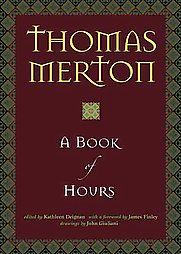Recent Reads
 I’ve found myself returning to posts on my “Reviews” page to refresh my memory of certain books, and I realize once again that this blog has, in a sense, spoiled me. If I think, “I’ll just keep a reading journal with pen and paper,” it doesn’t happen. This is where my reading is centralized. It’s not a commonplace book, the notes are not extensive, it’s not a “complete” picture of my thoughts on every book. But it is Reading Central for me just the same. And those reviews, even if they aren’t totally complete pictures of my opinions and experiences reading, do act as triggers to other memories of the books.
I’ve found myself returning to posts on my “Reviews” page to refresh my memory of certain books, and I realize once again that this blog has, in a sense, spoiled me. If I think, “I’ll just keep a reading journal with pen and paper,” it doesn’t happen. This is where my reading is centralized. It’s not a commonplace book, the notes are not extensive, it’s not a “complete” picture of my thoughts on every book. But it is Reading Central for me just the same. And those reviews, even if they aren’t totally complete pictures of my opinions and experiences reading, do act as triggers to other memories of the books.
So here are a few capsule reviews of books I’ve visited/revisited over the last few months:
1. Reclaiming Conversation, by Sherry Turkle. I checked this out a few months ago and didn’t finish it; more recently I checked it out again, and I still haven’t finished it.
The reason is this: it is depressing, and somewhat repetitive. I say this hesitantly, because I like Sherry Turkle very much as an author. Her book Alone Together: Why We Expect More from Technology and Less from Each Other was an excellent, thorough examination of what our devices do to our relationships. But Reclaiming Conversation seems to revisit the same territory — granted, with different, more up-to-date evidence, but still the conclusion is all too similar: Our devices are changing us, handicapping us in some ways.
What is interesting about Sherry Turkle is that she is someone whose opinions of technology have evolved over the years. In her early work, she felt cyberspace was a great place to explore identity and therefore was a positive force in mental health. But as more and more data has rolled in, her views have changed. In this book, she focuses on the generation that has grown up with iPhones — and parents glued to their iPhones — and offers piles of evidence that our relational competencies, our capacity to learn and know and think, our interactive ethics are all changing for the worse. One gets a general picture of people trapped in a web — aware of it, but unsure what to do about it.
I think for a first-time reader of Turkle, this is the book I would recommend, because it focuses on the most current technology and the most current data. The basic point (again, I have not finished it, so this is an in-progress impression) is that face-to-face conversation, though increasingly avoided in favor of texts and emails because of the intimidation inspired by the mere idea of the unedited self, is one form of salvation in the age of devices. There are dimensions of knowing that can only be learned through the failures, stops and starts, clumsinesses, even dead spots — as well as the soaring moments — of face-to-face conversations.
I strongly recommend listening to one or more interviews with Turkle as she discusses her book. Interviews (and reviews) can be found here, on her website: Sherry Turkle Reviews and Interviews.
2. Men of Iron (Howard Pyle) is one of the books recommended to supplement our history study this year. The plot concerns Myles Falworth and his quest for knighthood, and it was a page turner. I enjoyed the dialect, the drama, the description, and the well-paced plot. The place in my heart that has always loved tales of knights and castles was completely satisfied by this classic book for young adults.
3. The Help (Kathryn Stockett) was a reread. I felt much the same as I did the first time, and I enjoyed it every bit as much. This time I also went online afterward to see if the author has produced another book yet — no luck. I also discovered some interesting facts about a lawsuit filed after the book was published, Stockett’s personal story, and books on similar subjects (such as this one) that might help to flesh out the picture.
4. Out of the Silent Planet (C.S. Lewis). This is a reread as well, but it has been so long since my first reading that it felt like a first-time read. Of the three books in the space trilogy, I’ve reread That Hideous Strength most frequently (review here). Despite the fact that Perelandra is responsible for reviving my interest in reading as a college student, I have never tried to reread it; maybe this comes from a sense of reverence for the book, and for what it inspired. Sad to say, I have tried lately to reread Perelandra, but it is progressing slowly, and more out of a sense of duty than pleasure. Maybe I should have left it alone!
But Out of the Silent Planet was interesting enough. It does have a somewhat cerebral, slow-moving quality for science fiction, but I was able to read with patience and interest as Ransom made his voyage and delineated all his many reactions and adventures on Malacandra (Mars). I was left with a general impression of chill and cold, not entirely hospitable beauty. It lays out the theological vision of the universe that forms the groundwork for all three books, including the idea of a fall on earth (the “silent planet”) long before life even existed there. Such a fall would help to explain the existence of the serpent in the Garden of Eden, even before the fall. But of course the trilogy is an imaginative, speculative project, not systematic theology.
In any case, I am not giving up on Perelandra. Perhaps if I reread all three books in succession, That Hideous Strength will be entirely comprehensible to me at last!
5. Come Thou Long Expected Jesus (Nancy Guthrie) is a collection of readings for the Advent season. I read it on the Kindle, and though I liked it at the time, I find I’m unable to recall much about it now. Some of the sermons (and sermon excerpts) were excellent. At the time, the book helped me to focus my thoughts on Christmas — something I have an increasingly hard time doing as I get older, and the holiday develops an ever-longer list of obligations and commitments. It seems paradoxical that I was able to bask in the season much more fully and freely when I had only myself to think about!



2 Comments
Barbara H.
I’ve read Guthrie’s book a few times during past Decembers. I found the sermons or excerpts excellent as well. It’s a great way to focus one’s mind on the meaning of the Christmas season. She has a similar book for Easter, Jesus Keep Me Near the Cross, that I have used as well.
Cerebral is a good word for Lewis’s space trilogy. I think I have read each one twice and benefited from them but I think subsequent readings would open them up to me even more.
hopeinbrazil
I enjoyed your thoughts on these books, especially Turkle’s.